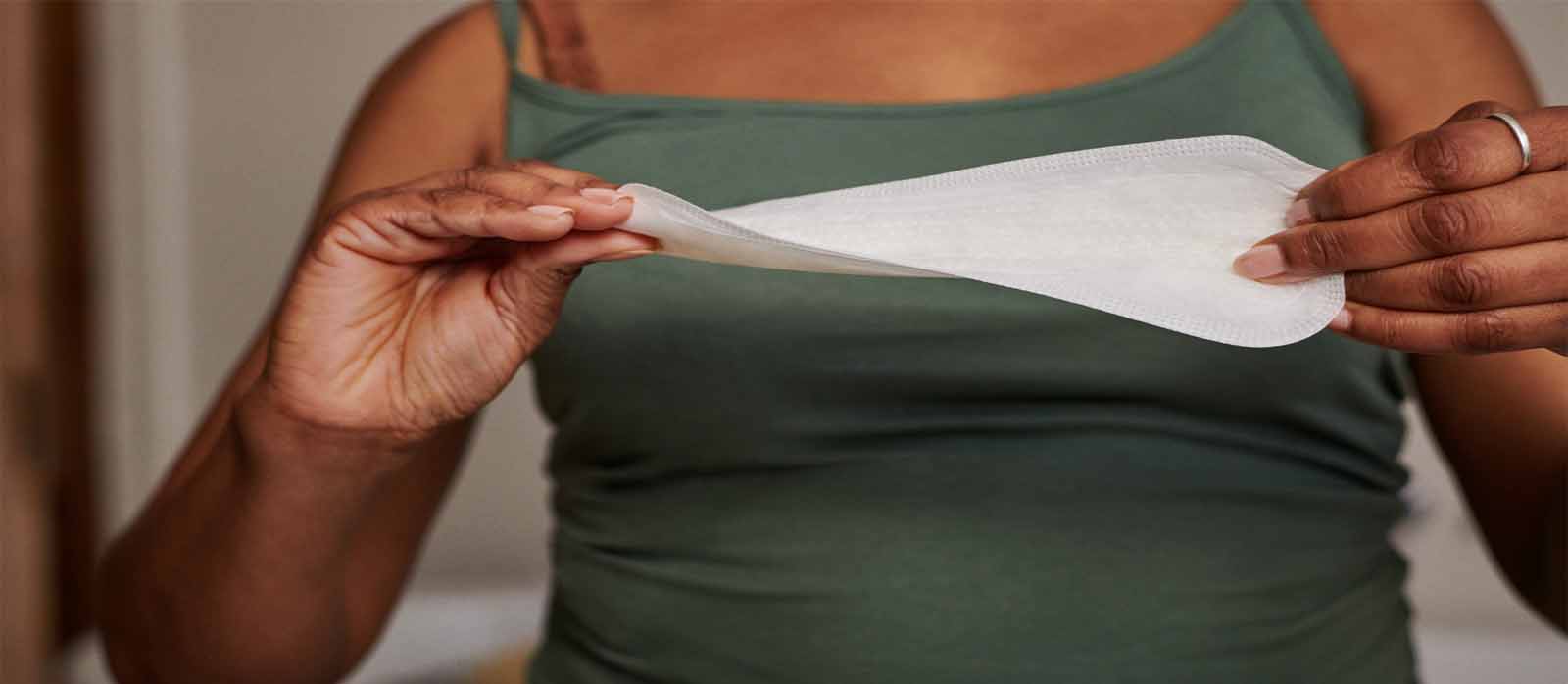Oct 23, 2025
It might not be a thought that crosses your mind often, but you might find yourself wondering what causes bladder cancer, especially if you've heard about it from a friend or loved one.
While the exact causes of bladder cancer aren't fully known, there are several factors that can influence your risk of developing this cancer.1
Let's explore what puts you at risk, and which factors you can control to support your health.
Why Understanding Your Risk Factors Matters
Risk factors are lifestyle habits, health conditions, or exposure to things that could increase your likelihood of developing a disease.2 Like any condition, having one or more bladder cancer risk factors doesn’t mean you'll definitely get it.2
Instead, it simply signals areas for you to pay attention to. Being aware of these factors early could help you make choices that support your health.1
Bladder Cancer Lifestyle-Related Risk Factors
Smoking and Tobacco Use
Tobacco smoking is the biggest known risk factor for bladder cancer.3 When you smoke, harmful chemicals enter your body and pass into your pee, where they come into direct contact with the bladder lining.4
The constant exposure makes smokers about three times more likely to develop bladder cancer than non-smokers.4 Smoking could also affect recovery and raise the risk of cancer returning.3
It is important to remember that smoking has this impact, whether it's traditional cigarettes, electronic, or even second-hand smoke.4
We know that smoking increases the risk of developing bladder cancer, read more about how smoking affects your bladder health.
Chemical and Occupational Exposure
Some jobs and everyday environments could also expose you to chemicals that raise the risk of bladder cancer over time.5
The following materials may increase your risk of developing bladder cancer if exposed to them regularly:5
- Paints
- Plastics
- Rubbers
- Metals
- Vehicle exhaust fumes
Even long-term use of certain products, such as hair dyes, or drinking water with very high levels of arsenic could also play a role.5
Biological and Medical Risk Factors
Age and Gender
Men are more at risk to be diagnosed with bladder cancer than women.1 Each year, doctors diagnose about 60,000 men compared to 18,000 women.1 That said, while women are less likely to develop the condition, they’re often diagnosed at a later stage due to some symptoms being harder to detect.6
Age is another important risk factor.1 Bladder cancer could occur at any age, but the risk rises as you get older, especially for people 55 and above.1,7
Family History and Genetics
Having a close relative who had bladder cancer may raise your risk, and researchers have linked specific gene changes to bladder cancer too.7
Chronic Bladder Conditions
Chronic bladder conditions, such as repeated bladder infections (cystitis), could increase the risk of bladder cancer over time.8
Catheters are often important for managing issues like urinary incontinence or retention, but long-term use may irritate the bladder lining and add to bladder cancer risk.9
Previous Cancer Treatments
Some cancer treatments may also raise bladder cancer risk.10,11 For example, long-term use of certain chemotherapy drugs, such as cyclophosphamide, could affect the bladder lining.10
Similarly, pelvic radiotherapy may cause changes to bladder cells that increase risk over time.11 It is important to let your doctors know about your concerns before starting or stopping any treatment.
Risk Factors Specific to Men and Women
Men are three to four times more likely to develop bladder cancer compared women.6 The higher rates in men could be due to greater chemical exposure and higher smoking rates.12
Women, however, could face delays in diagnosis.12 Early signs like blood in their pee are sometimes mistaken for urinary tract infections.12 In many cases, they are treated with antibiotics first.12
Can You Reduce Your Risk?
Some risk factors, such as age or gene changes, may be beyond your control.7 The good news is that you can still lower your risk by:
- Quitting smoking and avoiding second-hand smoke.1
- Using protective equipment if you work around harmful chemicals.1
- Staying hydrated.1
- Scheduling regular check-ups with your doctor if you have higher risk factors, like smoking.13
When to Talk to a Doctor
You should see your doctor if you notice or have any of the following:
- A family history of bladder cancer.13
- Several risk factors, such as smoking, older age, or being male.1, 13
- Possible bladder cancer symptoms, like changes in bladder habits, or blood in your pee.13
You Have Control Over Some Risk Factors
Bladder cancer has many risk factors, like smoking, chemical exposures, chronic bladder issues, age, and family history. While you can’t avoid all of them, you could still reduce your risk through lifestyle changes; like quitting smoking, staying hydrated, or protecting yourself at work.
The important thing is being aware of these risks; it’s the first step toward protecting your health and avoiding what you can.
If you have any concerns or notice possible warning signs like blood in your pee, you should speak with your doctor.
There are many causes of urinary incontinence, and anyone can have dribbles or leaks from time to time. Explore our range of incontinence products for men and women, designed with your comfort, skincare, and confidence in mind. Learn more about incontinence products for men and women.
FAQs
What is the biggest risk factor for bladder cancer?
The biggest risk factor for bladder cancer is smoking.3 It greatly increases the chance of harmful chemicals affecting your bladder.3 Other factors that could raise your risk include:
- Being male1
- Being age 55 or older1
- Being exposed to chemical and occupational hazards5
Can you prevent bladder cancer?
Bladder cancer may not always be preventable since its exact causes aren’t fully known.1 Still, you could lower your risk by:
- Quitting smoking1
- Staying hydrated 1
- Scheduling regular check-ups, especially if you have higher risk factors.12
Does family history increase bladder cancer risk?
Yes. Having a family member with bladder cancer could raise your risk.7 Still, it doesn’t mean you’ll definitely develop bladder cancer.7
References
1. Hobbs H. Bladder Cancer: Causes, Types, and Symptoms [Internet]. Healthline. 2017. Available from: https://www.healthline.com/health/bladder-cancer
2. Risk Factor. Springer eBooks [Internet]. 2008 Jan 1;1264–4. Available from: https://link.springer.com/rwe/10.1007/978-1-4020-5614-7_3038
3. Mori K, Mostafaei H, Abufaraj M, Yang L, Egawa S, Shariat SF. Smoking and bladder cancer: review of the recent literature. Current Opinion in Urology [Internet]. 2020 Sep 1;30(5):720–5. Available from: https://journals.lww.com/co-urology/Fulltext/2020/09000/Smoking_and_bladder_cancer__review_of_the_recent.16.aspx
4. Silver N. Is There a Link Between Smoking and Bladder Cancer? [Internet]. Healthline. Healthline Media; 2022 [cited 2025 Sep 3]. Available from: https://www.healthline.com/health/bladder-cancer/is-there-a-link-between-smoking-and-bladder-cancer#smoking-and-bladder-cancer
5. Letašiová S, Medveďová A, Šovčíková A, Dušinská M, Volkovová K, Mosoiu C, et al. Bladder cancer, a review of the environmental risk factors. Environmental Health [Internet]. 2012;11(Suppl 1):S11. Available from: https://www.ncbi.nlm.nih.gov/pmc/articles/PMC3388449/
6. Heid M. How Bladder Cancer Differs in Women and Younger Adults [Internet]. TIME. Time; 2022. Available from: https://time.com/6233670/bladder-cancer-women-younger-adults/
7. National Cancer Institute. Bladder Cancer Causes and Risk Factors - NCI [Internet]. www.cancer.gov. 2023. Available from: https://www.cancer.gov/types/bladder/causes-risk-factors
8. Vermeulen SH, Hanum N, Grotenhuis AJ, Castaño-Vinyals G, van der Heijden AG, Aben KK, et al. Recurrent urinary tract infection and risk of bladder cancer in the Nijmegen bladder cancer study. British Journal of Cancer [Internet]. 2014 Nov 27 [cited 2019 Dec 13];112(3):594–600. Available from: https://www.ncbi.nlm.nih.gov/pmc/articles/PMC4453642/
9. Eskidemir Ü, Özyurt C. Determination of Bladder Cancer Risk in Long-term Catheterized Patients and Management of Diagnostic Process. ARC Journal of Urology [Internet]. 2018 [cited 2025 Sep 3];3(4):8–15. Available from: https://www.arcjournals.org/pdfs/aju/v3-i4/3.pdf
10. Weaver CH. Bladder Side Effects of Cancer Treatment [Internet]. CancerConnect. 2018 [cited 2025 Sep 3]. Available from: https://news.cancerconnect.com/bladder-side-effects-of-cancer-treatment/
11. N. Ari Wijetunga, Gessner KH, Kanchi K, Moore JA, Fleischmann Z, Jin DX, et al. Poor prognosis among radiation associated bladder cancer is defined by clinicogenomic features. Cancer Research Communications [Internet]. 2024 Aug 8 [cited 2025 Aug 25];4(9):2320–34. Available from: https://aacrjournals.org/cancerrescommun/article/4/9/2320/747767/Poor-Prognosis-among-Radiation-Associated-Bladder?utm_source=chatgpt.com
12. Orange County Urology Associates [Internet]. Orange County Urology |. 2025. Available from: https://www.orangecountyurology.com/blog/how-bladder-cancer-symptoms-can-differ/
13. Yetman D. Symptoms of Bladder Cancer [Internet]. Healthline. Healthline Media; 2023. Available from: https://www.healthline.com/health/bladder-cancer/symptoms-of-bladder-cancer






































































































